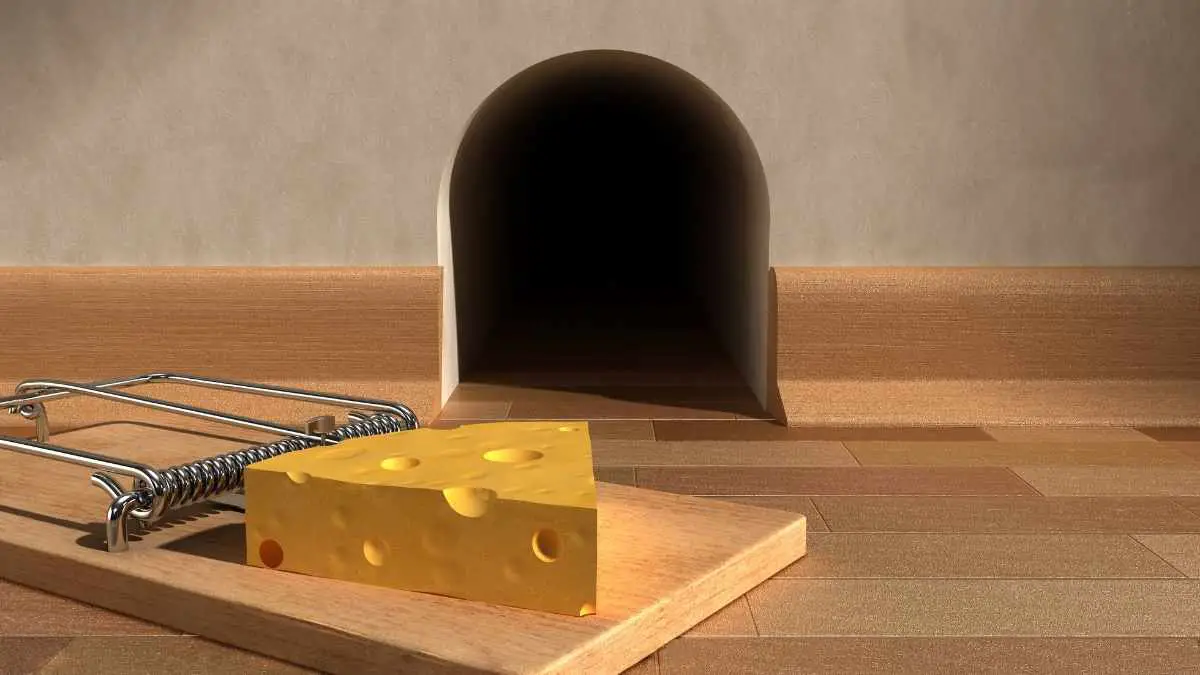Mice are relatively intelligent creatures. However, they are not smart enough to avoid traps. They appear to be avoiding your carefully laid traps because their instinct drives them. This is what helps keep them safe.
It is also what makes your mouse-catching task more challenging.
So even though mice may appear super smart, there is a way for you to outsmart them. Continue reading to learn more about how these little guys operate.
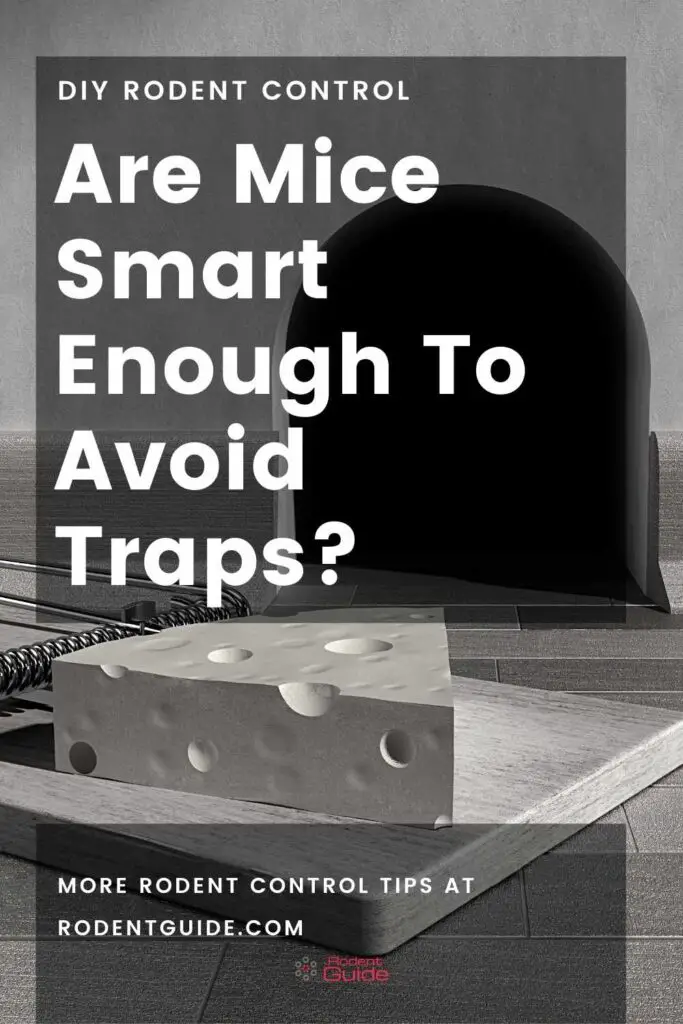
Are mice intelligent?
Mice are smart.
Their brain size (in ratio to their body size) indicates this. Numerous experiments carried out with mice also demonstrate their intelligence.
Scientists have even genetically modified some mice to increase their capacity to learn. Despite this, a mouse will not understand what a mouse trap is and will not be aware that it can result in death.
Why do mice avoid my mouse traps?
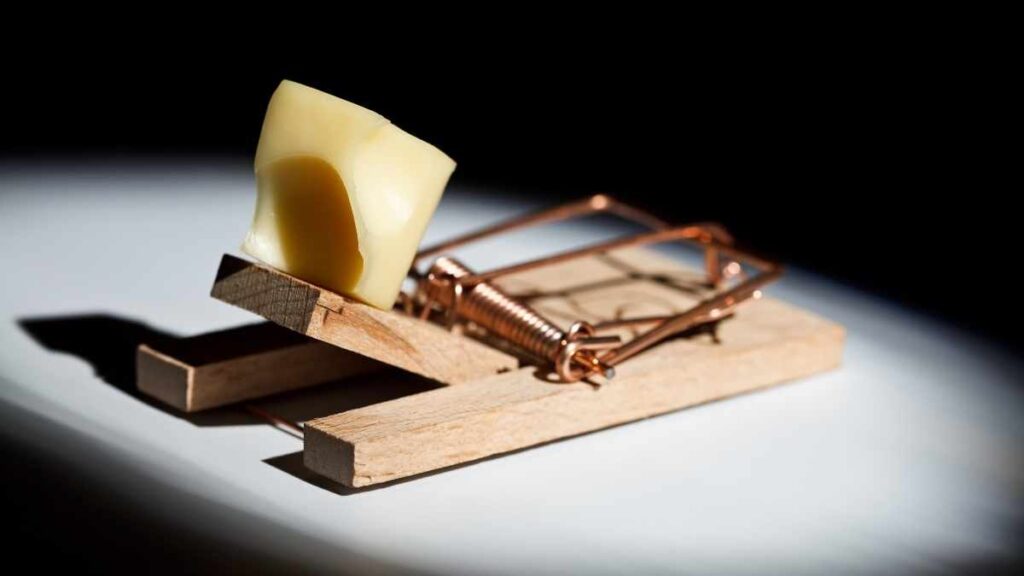
The number one reason mice avoid traps stems from their sense of smell.
Their smell is their strongest sense. If they don’t like the smell of something, they won’t approach it. The scent of humans will instill fear into mice. Therefore, if you have been handling a mouse trap, it is understandable that they will not go near it.
The easiest solution for this is to use gloves while you are setting up the traps. Alternatively, wash the traps thoroughly between uses.
As well as human scent, mice thoroughly detest the smell of other dead and rotting mice. So, make sure you remove any dead mice immediately. Again, wash the trap thoroughly to remove any smell.
You want to set up a mouse trap that only smells of the tasty bait you’ve set. If the mouse trap contains one of the following scents, it is likely to be avoided by mice:
- Human scent
- Dead mouse scent
- The scent of a predator (such as a cat)
Mice may also be suspicious if they notice a new object in their environment. This could be another reason they avoid your newly placed traps.
You will just need to be patient. It shouldn’t take too long before the mice become comfortable with these newfound items, especially if they do not have your scent over them.
What smells do mice like?

Mice like the smell of other mice’s urine. Well, they may not like it. But it does make them feel that they are in a safe place.
This is why humane mouse traps that capture the mouse live and unharmed can sometimes work better than their snap trap counterparts.
The captured mouse will spend time inside the trap, continuing to eat the treat that you left for it. All the while, it will be producing plenty of urine. After you dispose of your trapped mouse and re-set it, a new mouse will be able to smell the urine left by his previous companion. This should be enough to lure him into this supposed safe place.
Have I set up my traps correctly?
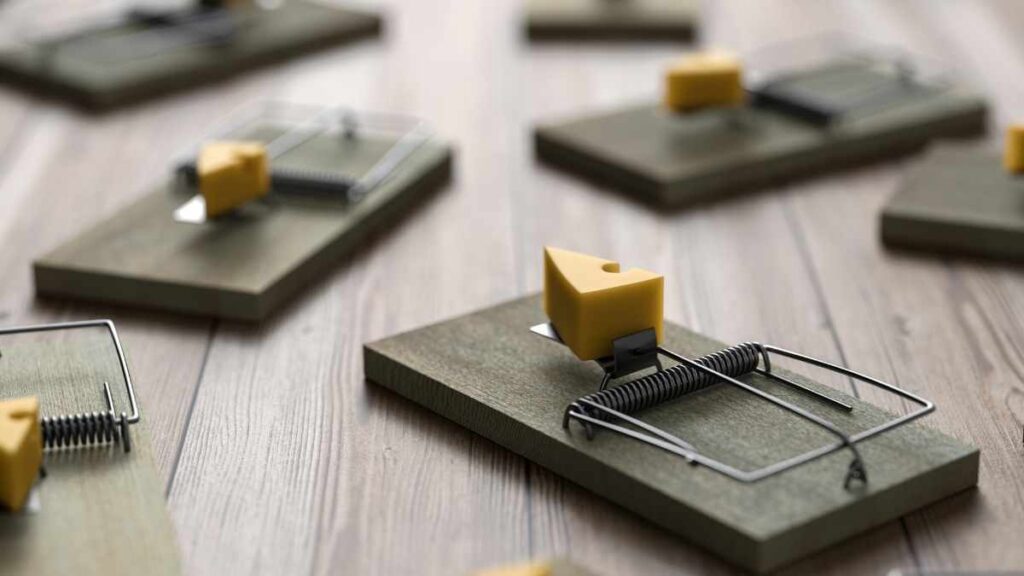
You may not be catching any mice due to the placement of your traps.
As mentioned previously, a mouse’s instincts will help it to avoid danger. There is no point in placing a trap in the middle of a room. There is no way a mouse will walk brazenly across an open space for a smidgen of peanut butter.
Mice will always stay close to walls, so this is where you need to place your traps. The corners of rooms and dark, covered places are also good options.
It’s always best to set multiple traps to improve your chances of eliminating your mouse problem.
Mouse droppings will also give you a clue as to where there is plenty of mice activity.
Here is a guide for setting mouse traps for higher levels of success.
What other factors make for a successful trap?
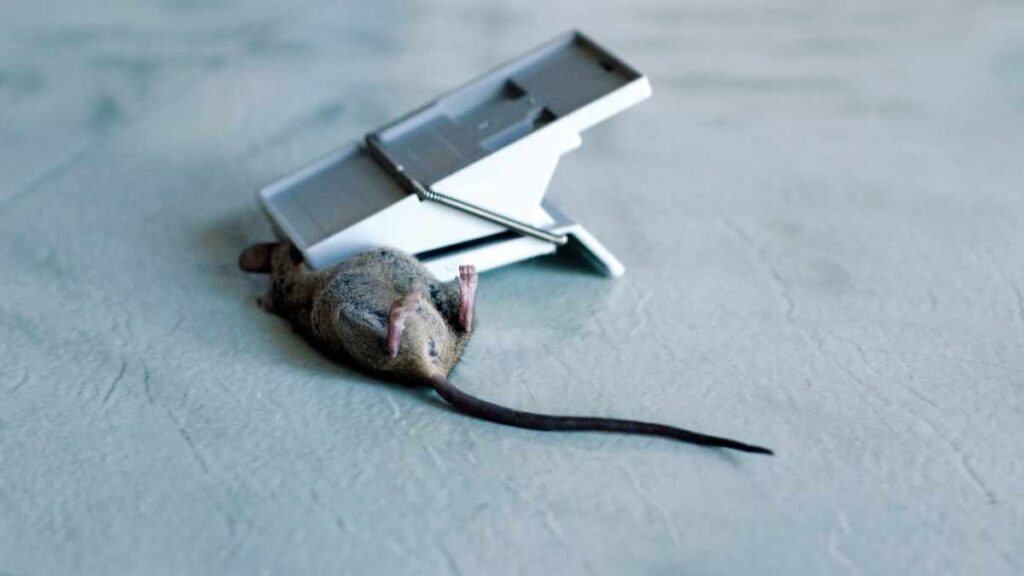
You can use cheese in your traps; however, mice prefer nuts. Peanut butter is a commonly used food in mouse traps. Don’t put too much food in your traps. Otherwise, the mouse may just take a small nibble and run off without triggering the trap.
Mice are always very cautious and on high alert, even when eating.
There is a large array of mouse traps available. From the classic spring-loaded traps to sticky glue traps (please don’t use these). Humane mouse traps (as mentioned above) are preferred by many, as they don’t harm the mouse and also have a success rate.
You can even create your traps using simple cardboard rolls and buckets of water.
If you want to go high-tech, you could set up cameras to observe the movements of the mice. It will show you the areas they frequent most, allowing you to place traps in the best positions. It may also give you an idea of how large the problem you’re dealing with is.
Finally, don’t despair. The main thing that will be required from you is patience. Solving your mouse problem can take time, but as you’ve seen, several effective ways exist.
And as we’ve learned, mice are smart – but not too smart!
Conclusion
Are mice smart enough to avoid traps? Yes and no. No, they do not know these are traps, but they may avoid them if the trap is new or contains a scent from you, a dead mouse, or a predator.
That doesn’t mean you will not be able to catch mice with a new trap. It just means it may take a bit longer. I mentioned before in this post patience is key when trying to catch mice. If you use the correct bait and place the traps in the right places, you will catch them.
Pest control isn’t easy, but once you know the basics, you can do it yourself.
If you are overwhelmed by mice or other pests, please contact a pest control company to help. That is what they are for.
Good luck!

